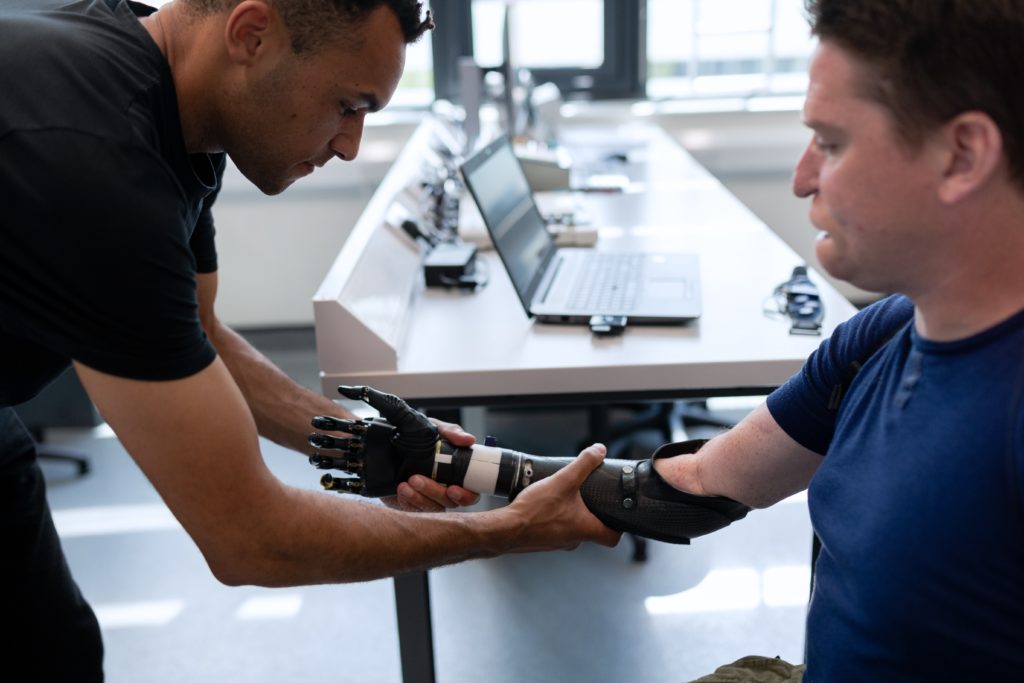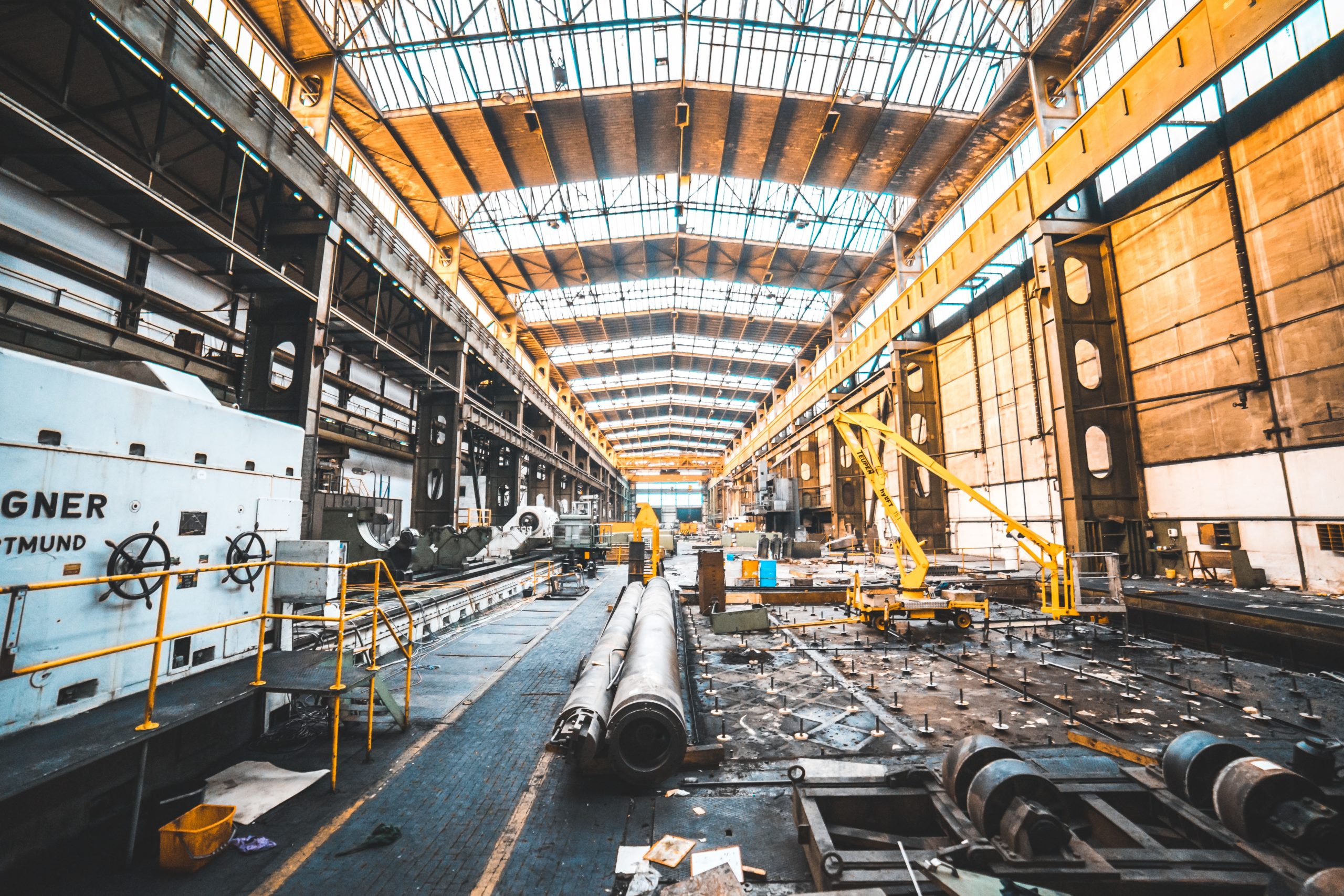Engineering can be broken down into four basic categories: mechanical, chemical, civil and electrical. The field of mechanical engineering is also broken down into many sub-disciplines. These disciplines are often compared to one another, and today, it is mechanical vs industrial engineering.
First, if you’re looking to launch your own blog and start writing articles yourself, no matter what the subject, you can launch your blog with Bluehost for just $3.95/month.
Start creating content and launch your blog with Bluehost.
Mechanical engineers can work in specific industries; building and designing automobiles, spacecraft, railway equipment or nuclear plants. These mechanical engineers are sometimes referred to as automotive engineers, railway engineers, nuclear engineers and aerospace engineers.
Mechanical engineers can also fulfill roles in areas that span the sub-disciplines. Lubrication engineers solve various types of lubrication problems in all types of equipment. Pneumatic and hydraulic engineers work with any and all equipment that employs liquid or air forms of energy, force control and energy conversion.
Solar, wind, fossil fuel and geothermal energy are also areas where mechanical engineers play an important role, where some of their responsibilities include waste disposal and management, fuel research, ocean engineering, energy storage and environmental control.
Some mechanical engineers also work in areas that are usually not considered to require engineering. Bio-mechanical engineers work with positions to investigate the working of the body and to design instruments and aids for medicine. Mechanical engineers can also work closely with athletes and trainers designing sports equipment. It will be very hard to find an object or an area in every day life that is not in someway affected by a mechanical engineer.

Mechanical engineers work in industry, government, consulting practices and universities. They may work in factories, offices, laboratories, classrooms or testing facilities. They can work as managers, teachers, designers or researchers, they can also work in sales and product quality control or equipment maintenance. Many mechanical engineers hold managerial positions in their companies.
Whether a mechanical engineer is working in corporate headquarters or on an oil rig they will always be solving the technical problems of today and tomorrow. Looking to hone your engineering skills? Or sharpen up your knowledge in a different discipline? LinkedIn Learning has online courses that will help you to stay ahead of the curve and you will also receive a certification at the end of the course. It’s free for the first 30 days!
Is Mechanical vs Industrial Engineering right for me?
Do you enjoy problem-solving? Are you a creative thinker? Do you work well in teams? Do you enjoy science and math?
As an engineer you are constantly learning new things researching new things and teaching yourself new things. A desire to learn is very important because of the ever changing research in this field. Engineers not only need to be good problem-solving, but they also need to have well-developed communication skills and effective technical skills. They are also skilled in 3D CAD programs like AutoCAD, Revit, Inventor and Fusion 360.
Mechanical vs Industrial Engineering Education
There are a few fields of engineering that really narrowly focus on one niche and so only have a few career routes, and maybe only have just a few thousand engineers employed in these disciplines. Contrary to this, there are very broad fields similar to mechanical engineering or industrial engineering. Branches such as these employ thousands of engineers, there are plenty of options and flexibility for a different job titles and duties.
Applications in the real world for these engineering branches can be seen in most disciplines you can think of. If having a vast range of talents and flexible experience interest you more than a more focused career and education route where jobs might not be so readily available, it may interest you to take the time to consider industrial and mechanical engineering. But before you make any sort of decision regarding your career path it is important to know the differentiation between both of disciplines, to ensure that you make the right decision.
Mechanical Engineering Education
Mechanical engineering refers to the application math and science principles to solving issues related to any object in motion or that can move. This includes robots and machines, but there are also objects that are less obvious, such as humans. A mechanical engineering course includes every single subject engineers must know to able to build and design machines, devices and tools that affect moving objects and machines.

An ABET (Accreditation Board for Engineering and Technology) accredited mechanical engineering course includes coursework in engineering principles, science and math such as multivariate calculus and differential equations. The core curriculum of ABET-accredited programs is mainly concerned with learning to model, design, analyse and create the physical systems, processes and components used in solving issues by improving or building thermal or mechanical systems.
Materials, instrumentation, controls, fluid and solid mechanics, thermodynamics and heat transfer are among the main subjects taught in mechanical engineering courses. Mechanical engineers have to obtain real experience in the field in manufacturing and design, often through unpaid cooperative or internship work programs, as well as being taught in the laboratory and classroom, the BLS reported.
Industrial Engineering Education
What specifically is industrial engineering? This specific engineering discipline, sometimes called industrial/systems engineering, concentrates on increasing the productivity, efficiency and performance of an organisation, system or process. There is a little crossover between industrial engineering and mechanical engineering, especially when industrial engineering is utilized in the manufacturing field. Furthermore, industrial engineering can be used in situations like reducing waste and increasing productivity in business situations beyond machines and manufacturing.
Undergraduate industrial engineering courses require essential coursework in planning and statistics, production systems and manufacturing systems design, according to the BLS. ABET-accredited degrees concentrate on learning the analytical, experimental and computational practice is required to integrate systems that include real-world elements such as information, people, equipment, energy and materials.
A graduate student from an accredited industrial engineering program will have the skills needed to implement and design these complicated systems and to discover ways on how these existing systems can be optimized.
What is Mechanical Engineering?
Mechanical engineers are very creative professionals that focus on the research, development, design and manufacture of mechanical systems/devices. One of the most diverse forms of engineering, mechanical engineers generally do not have any problems finding job opportunities.
What is Industrial Engineering?
Industrial engineers make essential choices in both business and engineering settings. Involved in the important decisions like ensuring maximum efficiency in the manufacturing workflow, quality control, cost analysis and the efficiency of employees activity. Industrial engineers are absolutely integral to business.
Mechanical vs Industrial Engineering Jobs
The areas of industrial and mechanical engineering are so vast, it makes it difficult to nail down what jobs fit into each respective discipline. There is also a lot of crossover between the job duties and job titles. As an example, mechanical vs industrial engineering careers can vary from supply chain engineer to design engineer and also from product safety engineer to operations engineer.

Both sectors of engineering requires its professionals to utilize their in-depth knowledge of math, engineering and science in an effort to analyse problems and come up with solutions to them. Commonly, industrial engineering merges engineering principles with business to increase profitability, in contrast to this mechanical engineering concentrates more on building and designing mechanical devices that create solutions to problems.
Mechanical and industrial engineers salaries are both very similar, coming in at an average annual salary of $85,880, the BLS says. The most generous employer in mechanical engineering is in scientific research and development services, who pay an average salary of $98,530 for talented and experienced mechanical engineers. For industrial engineers, electronic and computer product manufacturing is the highest paying field to them, offering an average salary of $94,120.
25% (or more) of the 288,800 mechanical engineers employed in the USA work in engineering and architectural services. 13% more of these mechanical engineers are employed in manufacturing machinery, 12% work in manufacturing transportation equipment, 7% are employed in scientific research and development and a further 7% work in electronic and computer product manufacturing.
Of the 257,900 industrial engineers in the USA, 18% are employed in manufacturing transportation equipment, 13% are employed in technical and scientific services, 13% are employed in manufacturing electronic and computer products, 8% are employed in manufacturing machinery and lastly 6% are employed in manufacturing fabricated metal product .
The BLS estimates employment for mechanical engineers to increase by 9% and industrial engineering employment to go up by 10% over the next 10 years, generating 25,000 and 25,100 engineering jobs in their respective fields.
Responsibilities of Engineers Working in Mechanical vs Industrial Engineering
Mechanical Engineers
Air-conditioners, refrigerators, and even elevators are developed and created by mechanical engineers. Similarly, vehicle engines and electrical tools are made more capable through the research done by these professionals, especially as they explore energy efficient devices and cutting edge thermal sensors.
Mechanical engineers are known for spending a significant amount of time in front of computers. They build simulations and models of their creations using CAD (Computer Aided Design). During this process, they also complete an analysis of the data produced by these experiments. If they happen to find an issue in the prototype, mechanical engineers have the expertise to develop solutions to these problems.
Job responsibilities of a mechanical engineer include:
- Supervising the installation of electrical units and engines
- Choosing the best materials for the prototype and final design
- Overseeing and assisting with manufacturing to address issues and keep the production within the deadline
- Utilizing and understanding schematics used to build models
Industrial Engineers
Industrial engineers work in factories or industrial sites, these professionals bring machines and workers together in an efficient and safe way to ensure that the production workflow becomes more efficient, which includes re-organizing the work space.

They ensure the production schedule is set, and break larger projects into smaller parts while giving priority to more pressing orders from management or clients. To be compliant with safety/engineering requirements and specifications put forth by the client, industrial engineers provide essential quality control to ensure that products satisfy standards.
Job responsibilities of an industrial engineer include:
- Completing a cost analysis of producing new items
- Tracking and managing inventory to order new materials when necessary
- Presenting stakeholders and clients with a risk analysis on beginning new projects
- Streamlining receiving processes and shipping for raw materials, parts and finished products
Thank you very much for being here – we appreciate you taking the time to read our content. If you have anything to add, please feel free to leave a comment down below, and sign up to our newsletter for more of the same!
You can also follow us on LinkedIn, Facebook, Twitter, and Instagram so you can stay up to date.



1 thought on “Mechanical vs Industrial Engineering”
so mechanical engineering and industrial engineering, which is better ?